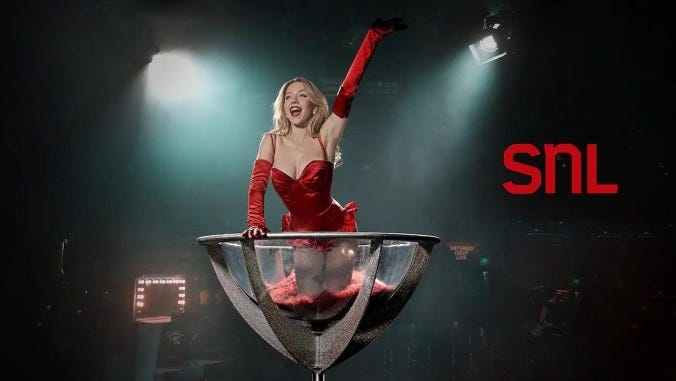I’ve got a perfect body
But sometimes I forget
I’ve got a perfect body
‘Cause my eyelashes catch my sweat
-Regina Spektor, Folding Chair
Currently, my four-year-old niece is obsessed with Queen Elsa from Frozen (and yes, it’s VERY IMPORTANT that you address her by her full title. Put some respect on her name!) Her previous obsession was snakes, specifically Gaboon vipers. We’ve gone from playing “snake bite” to “ice hands”—she blasts me with her ice powers and I have to freeze.
Recently when we were coloring together, she told me, “Elsa’s hair is golden and beautiful. I wish I had hair like Elsa.” I inwardly groaned. Even at her tender age, she’s starting to absorb messages about which physical traits were considered beautiful and high-status—blond hair was better than dark, long better than short, impossibly thick better than fine. For a biracial kid, this idealization feels especially fraught. (Not for nothing that a dad friend of mine jokingly referred to the cartoon character as “the white bitch Elsa.”)
Children often provide adults good lessons in embodiment. They experience their bodies from the inside-out, focusing on their feelings rather than how others perceive them. They refuse itchy seams and food that doesn’t please their narrow palates. They like what they like and there’s little arguing with them about why they, for instance, can’t wear pajamas to school. But somewhere along the way, we learn to flip this perspective—we live from the outside-in, spending more time thinking about how we are perceived than what we are feeling and experiencing in our bodies.
Philosopher Maurice Merleau-Ponty calls this “the body as object.” He argued against dualist philosophers like Plato and Descartes who tried to separate the mind or soul from the body, pointing out that the self is forever tethered to the body, and that only the body can experience the world.
There’s good reason for our preoccupation with what others think of us. Nearly every -ism leveled against us is based on appearance. When your skin color, gender, or nationality is the subject of prejudice, of course you’re going to feel stress. We may tweak our appearance or behavior (aka codeswitch) to try and mitigate these harms. But trying to change ourselves to fit an ideal comes at a personal cost, overburdening people who are already impacted by the stresses of prejudice. This isn’t justice.
And the funny thing is, research has shown that those whose bodies hew closer to our societal ideals are actually less happy than those whose bodies diverge from these so-called “ideals.” Still, many of think we need to be Sydney Sweeney or Chris Hemsworth to be loved.
But the truth is that the people who love us not because we conform to some imaginary standard, but because we’re us. That means our obsessions, our corny jokes, annoying habits and all, even our cellulite, crow’s feet, back hair, and B.O. And that’s because love is specific. To be loved is to be irreplaceable, even by Sydney Sweeney.
As my niece traced a tiny finger along her coloring book page, I told her, “I like your hair. Look at the way it’s got a little bit of red mixed in with the brown! Feel how soft it is.” It felt like a feeble offering in the face of the barrage of negative messages she’ll get as she grows up, but I hope to plant a seed that she’s wonderful just the way she is.
I want to plant a seed inside myself as well, to learn to talk to myself the way I talk to my niece. Instead of pinching my belly flab with disgust, I can remind myself how much my cats like to sleep on that soft part of me.
Dismantling this hierarchy of bodies is about more than feeling good when we look in the mirror—it’s about justice. Body justice would like everyone experiencing dignity, safety, and belonging while being their authentic selves. It looks like dismantling hierarchies of which bodies are “good”, and which must be remedied. It looks a lot like love.
How has your body image changed over time? What makes it better or worse? Who do you imagine changing bodies with?
BONUS MATERIALS:
I have a fair bit of imposter syndrome when talking about body justice, but Sonya Renee Taylor gives a great overview in this podcast
um…RELATABLE





Well said and well worth thinking about <3. The term "double consciousness" also comes to mind - a way W.E.B. Dubois described the experience of being Black in America. I also think women experience something like this more than men, since we are so consistently objectified, and the default human experience (as expressed in movies, books, politics, etc.) still so often assumes the perspective of a man.
"But the truth is that the people who love us not because we conform to some imaginary standard, but because we’re us. That means our obsessions, our corny jokes, annoying habits and all, even our cellulite, crow’s feet, back hair, and B.O. And that’s because love is specific. To be loved is to be irreplaceable, even by Sydney Sweeney."
Love is specific to our quirks... well said.
Also, not enough is said about the value of humor as an attractive quality. My entire generation was raised on the Pretty In Pink mentality that Blane is more desirable than Duckie. I mean really... BLANE?? Even as a teenager, that decision didn't make sense to me. I went to a high school FULL of Blanes and they were all dicks.